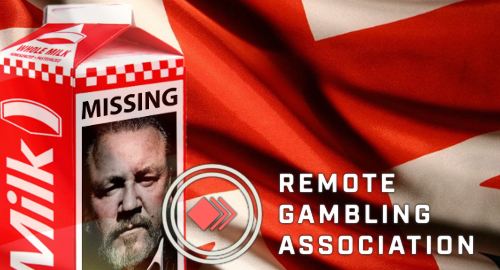 UK gambling operators are meeting this week to discuss the imposition of strict new advertising rules in a bid to head the government off at the pass.
UK gambling operators are meeting this week to discuss the imposition of strict new advertising rules in a bid to head the government off at the pass.
On Monday, Sky News reported that the board of directors of the Remote Gambling Association (RGA) industry group would meet Tuesday to discuss what the media outlet called “an unprecedented series of voluntary curbs” on the industry’s advertising practices.
The London- and Brussels-based RGA, whose 35 members include most UK and European online heavyweights, reviews its self-imposed advertising codes on an annual basis. But this year’s debate promises to be extra thorny, as the changes reportedly up for discussion would be the most restrictive to date.
Among the changes reportedly on the agenda include a limit of one gambling ad per commercial break, a total ban on gambling ads before the 9pm watershed, and banning all in-play betting ads during sports matches (guess Bet365 pitchman Ray Winstone will have to go back to making movies).
The ‘one ad per break’ bit was actually announced earlier this month by UK broadcasting giant Sky, who plan to introduce the change across its channels as of August 2019. Sky also said it was developing new AdSmart technology that would allow viewers to filter out all gambling ads.
In October, the UK Gambling Commission warned its licensees that they faced a “brewing storm” due to ‘hardening’ public and political attitudes toward gambling advertising. A few days later, GVC Holdings boss Kenny Alexander acknowledged that there were “far too many” gambling ads on television and suggested the industry “collaboratively” adopt strict new standards to ensure a “level playing field.”
The industry would do well to heed Alexander’s advice. Operators recently received a double-shot to the gut when the Tory government caved to a backbench revolt and agreed to advance the implementation of dramatic cuts to fixed-odds betting terminal (FOBT) stakes and an increase in Remote Gaming Duty.
Anti-gambling campaigners have shown little sign that this recent victory has sated their appetite for reform, and it’s hard not to imagine that the next campaign will call for a similarly drastic reduction in online slots stakes. That said, it’s not like any of the industry’s self-imposed curbs have ever proven satisfactory to this lot, so it almost doesn’t matter what consensus emerges from this week’s RGA meeting.